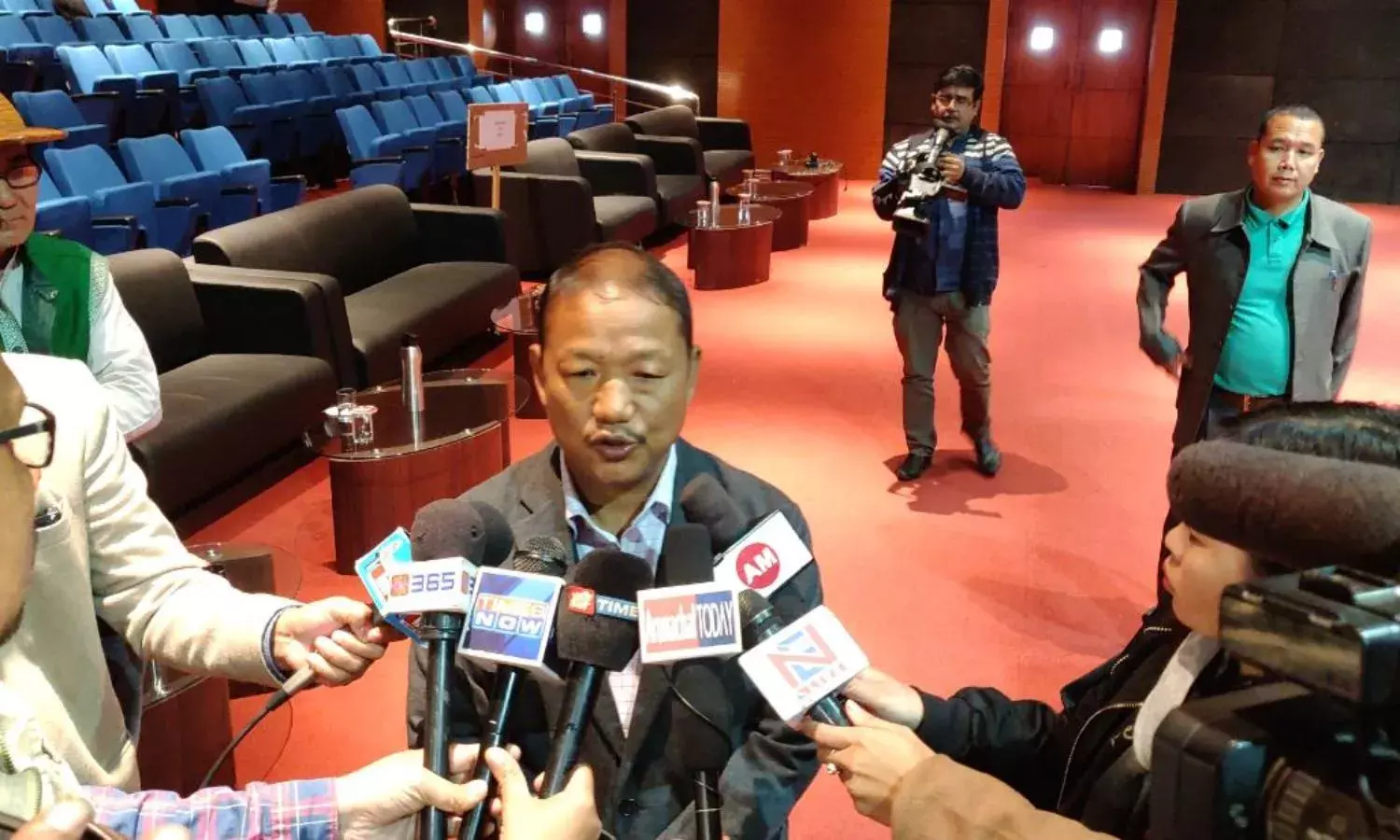BJP Govt in Arunachal ‘Unequivocally Opposed’ to Citizenship Act Amendments
But no cabinet resolution against, unlike Meghalaya or Mizoram

ITANAGAR: The BJP government in Arunachal Pradesh will ‘voice’ its ‘unequivocal opposition’ to the centre, but stopped short of passing a cabinet resolution against the contentious Citizenship Amendment Bill.
The BJP at the centre has faced a backlash from various political parties in the northeast, including some allied with it, over proposed amendments to the Citizenship Act that will make it easier for people of six non-Muslim faiths from Afghanistan, Bangladesh and Pakistan to gain Indian citizenship.
The party’s alliance partners in the northeast have been opposing the proposed amendments, with the state governments of Meghalaya and Mizoram even adopting cabinet resolutions against it.
The bill was passed by the Lok Sabha earlier this year, but lapsed as the government didn’t table it in the Rajya Sabha ahead of the general election.
By then, widespread opposition had erupted across the northeast states, led most notably by some of the largest students’ unions here under the umbrella of the North East Students Organisation.
NESO has since led a sustained campaign against the bill, most recently through demonstrations in seven states on Monday.
The Arunachal Pradesh government had formed a consultative committee headed by its home minister Bamang Felix to seek opinions on the bill from tribal community-based organisations, civil societies and students’ unions.
On Wednesday the committee held its final meeting and made its recommendations public.
The government’s official stated stance is that it is ‘unequivocally opposed’ to the Citizenship Amendment Bill.
It will recommend to the union home ministry that existing provisions protecting the tribal-majority state, such as all provisions of the “Bengal Eastern Frontier Regulation 1873 (Regulation 5 of 1873 and all provisions of section 22, 23, 38, and 40 of the Chin Hills Regulations 1896 (Regulations No 5 of 1896) shall be deemed to have been enacted under this act and shall have effect accordingly, and that the provisions of this act shall not be applicable to any person who has been residing in or has entered or may enter the state of Arunachal Pradesh in violation of the BEFR 1873 on the aforesaid or the aforesaid provisions of Chin Hills Regulations 1896 or the Criminal Law Amendment Act 1961 (Act no 23 of 1961) as amended from time to time.”
During the committee’s final meeting, NESO state co-ordinator Pritam Bhai Sonam said the student body’s stance is clear, that the bill should be revoked completely and should not even be tabled in Parliament.
And Bengia Tolum, president of the Arunachal Indigenous Tribes Forum, said the state government should incorporate a clause in its submission to the centre asking for a National Register of Citizens in the state, similar to the one in Assam.
Tolum said an NRC would help identify the “indigenous people” of the state.
Home Minister Felix today also said that the state government “cannot guarantee” that the centre will accept its recommendations, but that it “will fight tooth and nail to protect the rights of indigenous people”.
He later told reporters that the cabinet did not officially adopt a resolution, and that chief minister Pema Khandu would “convey the voice of the people” to the central government.



